My friend Victor Decloux, 'Vic' as most of us know him, is another of those
guys who, with the tools of the day, that is from nearly scratch , came up from
the standard morse code key and helped make Spectrum management in Canada as we
know it today ! Here are some of his lines, extracted from personal correspondence and adapted for the web by
Laval, May 2004.

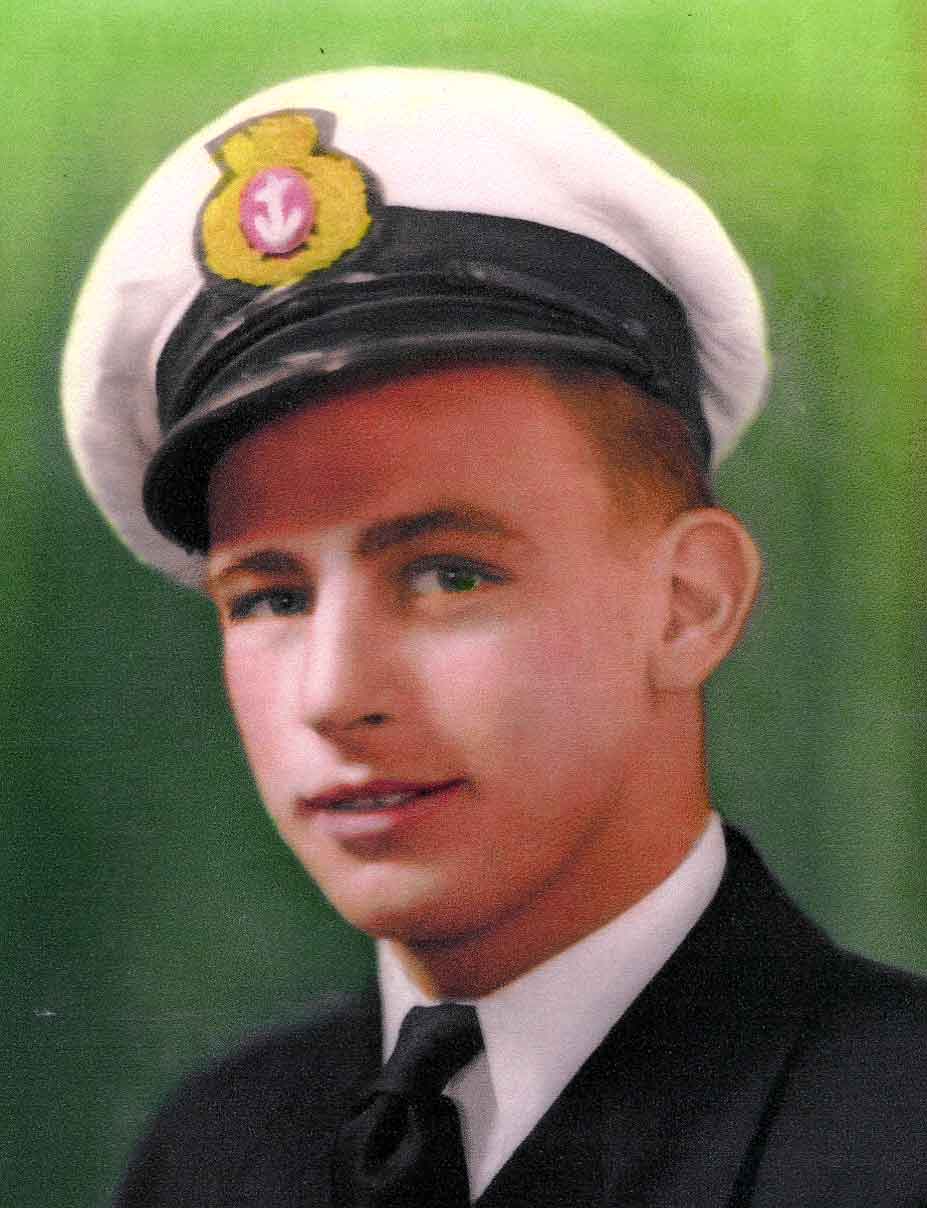 " So How did I end up in Telecom Regs
you asked ? "
In 1943 after graduating from high school
at the St Paul’s College in Winnipeg, my mother, my kid brother and I followed my Dad,
a Navy man, my sister and brother, both of which were in the Air Force, to Eastern Canada
and Toronto. As a sixteen year old having tried working at a couple of jobs ( Massey Harris driving a yard tractor and Hamilton Carhartt as an apprentice sewing machine mechanic and other menial jobs) I decided that I’d do better if I took some kind of training.
Having decided on Radio College of Canada studying for a radio operator Certificate and having completed about half of the nine month course, the Department of Transport came along and offered subsidized training
, a refund of Tuition costs and a $ 60 monthly allowance while in school. This seemed a good deal to me and so I signed up. The deal was that to earn the subsidy, we had to commit either to two years as a radio operator on a DOT station or two years at sea as a Wireless Officer.
Canada was building ships on both coasts and in Sorel, Quebec and having some difficulty in staffing Deck and Radio Officers. Deck officers were being recruited in England and programs at various technical schools in Canada were called on to train Radio Operators.
And so, I graduated in October 1943 with a 2nd class Certificate of Proficiency and was assigned to the Seaman’s Manning Pool in Montreal. From there I was transferred to the Manning Pool in Vancouver and soon assigned to a brand new ship which happened to be doing sea trials at the time.
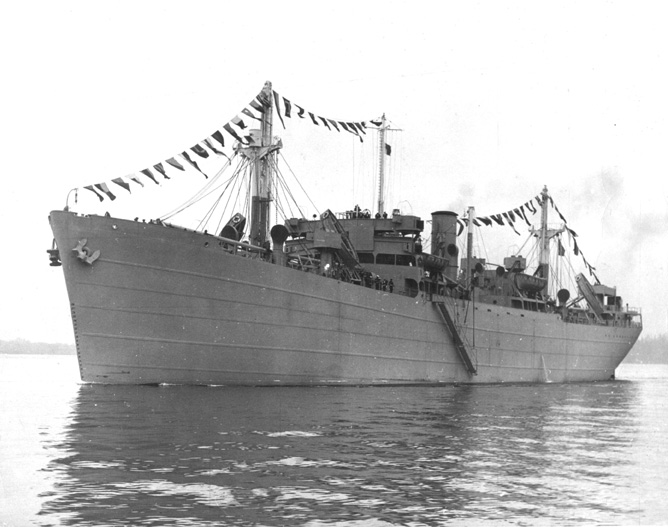
This ship was the SS Westbank Park, a ten thousand ton freighter that on its first voyage was scheduled to travel to the United Kingdom via the Panama Canal then on to New York City to pick up the largest convoy to cross the Atlantic during the war. Approximately 140 Merchant ships with an escort of Canadian, American and British warships.
Two years at sea followed, culminating in the
loss of the Westbank on the rocks in Magdalena Bay, Lower California. The shipwreck and loss of the ship is covered in a story " The Last Voyage and Loss of the Westbank Park" in the book by S.C. Heal (ISBN 1-55125-023-3). As the war had ended while we were in Newport, Monmouthshire, upon our return to home port (Vancouver) via another Canadian Ship to Los Angeles then by troop train to Vancouver we were notified that the requirement for continuous watch had ended as did the requirement for three operators. This left many us "on the beach’ and most of us decided to return home!
Again, after returning to Toronto, and working at a few jobs, Northern Electric , driving a truck for a lumber yard, Coca Cola and others, I decided to dig out my Radio Certificate and see what employment was available…
It wasn’t too long before an application for work with Canadian Pacific
Airlines came through and I went East and worked as a radio operator in
such places as Rimouski, Baie Comeau and Mont Joli, on the shores of the St
Lawrence River.
We used CW for Passenger and mail manifests, weather etc between the stations
and of course phone for contacts with the Aircrafts. In those days most of the
winter mail for the lower north shores of the St Lawrence was delivered to the
various little towns and villages east of Sept-iles by mail drop...drop down to
about 200 feet and let-er go ! Not a good idea to mail bottled beer, booze
etc... That stuff was delivered by boat during navigation season. We used to
have a great little hockey league in Sept - Îles
and I played for the home team!
My memory fails me and I don't recall what frequency we used, might have been
5680KHz (Kcs in those days) because I remember listening to aircraft traffic
from places like Shelter bay, Mingan and Havre St Pierre (all along la côte
nord). My operating Buddy in Sept-Îles was an old land-line operator called
Johnny Houle, he could copy code at 40 or 45 wpm and stop to roll a cigarette,
light it and go back to copying, no words missed, fantastique. Johnny
lived in town with his wife and a bunch of kids (at least ten).. Long nights I
guess...
But before I left Toronto, I had submitted an application to the Department
for employment as a radio Operator ( no subsidy this time! )… After six months
or so, this resulted in a job offer and my acceptance to work on the Radio Range
at Malton airport.. I had no sooner completed my training as a met observer when
it was suggested that I go to the Arctic to complete what was in those days a
requirement for all DoT operators to serve in Isolation for a year and so I came
to ...
Chesterfield Inlet
on Hudson's Bay for 14 months.1946/47.
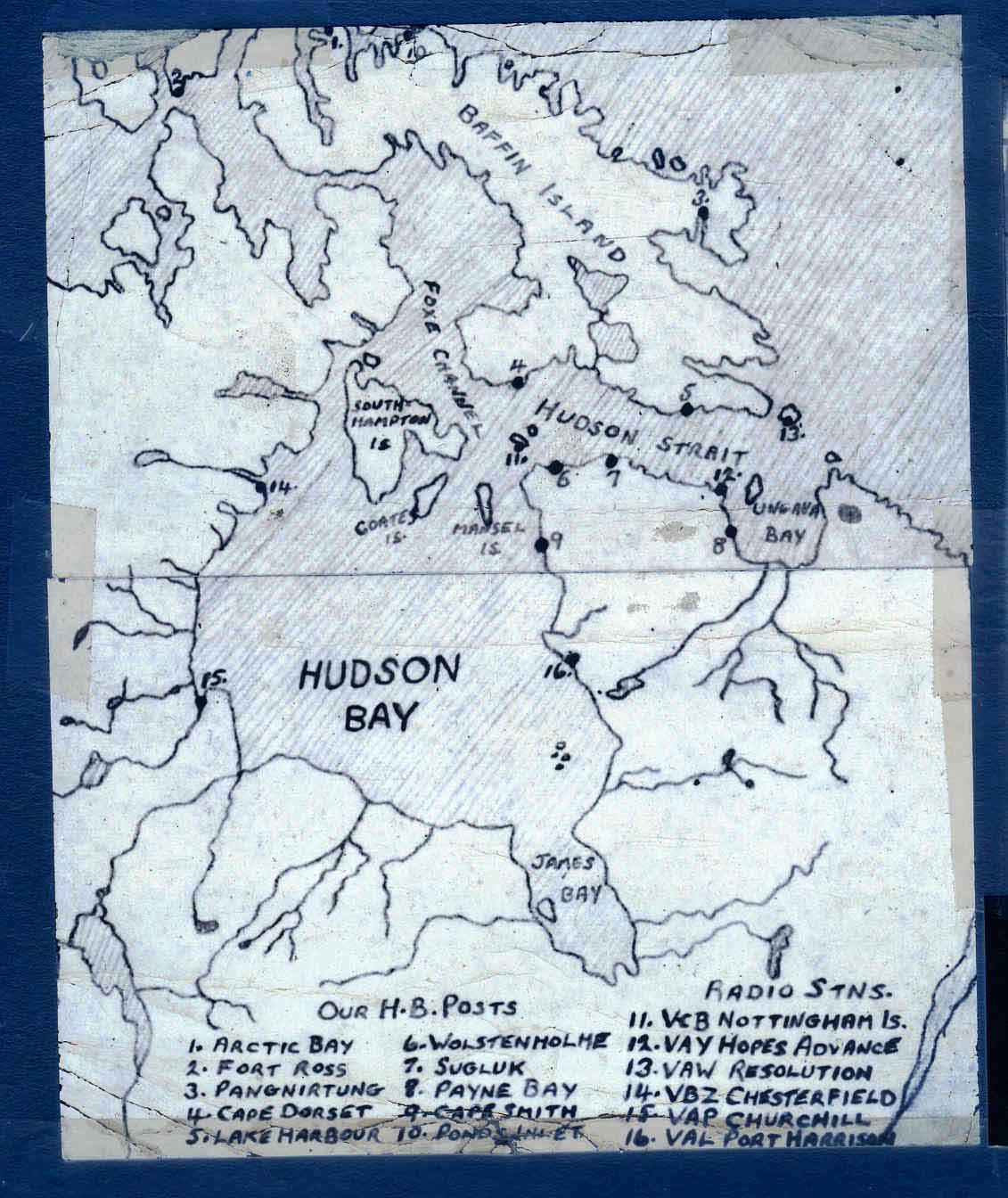 My posting was to Chesterfield Inlet Radio VBZ
, on Hudson’s Bay, a Dept of Transport Marine (Summer Navigation season only) and Weather station and a traffic handling Centre for the area…I recall that we were all waiting in Churchill for the Nascopie (the
government ice
breaker) to take us to our respective stations when it foundered in or near Cape
Dorset.
We all had to stay in Churchill waiting around while they found other ships and
ordered supplies to replace those that were on the Nascopie.
In my case it was the MV Blackmore from somewhere in Newfoundland. That voyage
was memorable because Captain Blackmore and his boys had gone into the woods
near the ocean to get the wood and built the ship that came to Churchill and
took us to our postings in Chesterfield Inlet.
Navigation was difficult getting to Chesterfield because as you approach the
Inlet, Marble Island is in the way and there is always severe magnetic
disturbances so you needed good weather in those days to see the sun or other
celestial bodies to navigate around it . (GPS hadn't even been conceived yet,
never mind the birds to carry it!)
A Doctor was stationed in Chesterfield and we found ourselves handling all kinds of medical traffic in and out to resolve problems being experienced by the Eastern Arctic Community… either using Morse Code or Telephone wherever facilities were available.
For the enjoyment of the crews posted north, the Woodrows, while at Port
Harrison, used to put on weekly concerts that everyone in the area could
hear, on the same radio Frequencies that all DOT stations used to contact the
Hudson's Bay posts 4356 and 3437 Khz. After 14 months in Chesterfield we had missed our last opportunity to get to Churchill or out of the Hudson’s Bay area on one of the supply boats. Winter was coming and all the boats had left.
We managed to hitch a lift on the last boat, again, the
MV Blackmore,
to Baker Lake where we hoped to connect with an RCAF Dakota flight to Churchill
where there had been an Ionospheric Sounding Station operated by the Carnegie
Institute.
It was there that we met and stayed with Bob Stevens, Giles Bulger, Don
Fraser and Al Simpson who were setting up a new station for the Ionosphere
Service. In all, there were about 6 or 7 DOT guys that I knew , running a
program for DRB and the Bureau of Standards in the USA. It was at that time that
I though working on an Ionosphere station might be fun so upon my return to
civilization . We were there three weeks waiting for the RCAF to come in and I decided to apply for the Ionospheric Service in DOT.
So back to the Toronto Radio Range for 7 or 8 months, this time as a working Radio operator on the Radio Range station in the years 47/48, always interested in a transfer to the Ionosphere Service, and waiting for the results of an application for a transfer to that service. In the spring of 49 I was successful and left for Ottawa to begin training. I left in July to go to...
Clyde River
on Baffin Island (1949/50) ..
Transportation to Clyde River was from Churchill aboard an
RCAF Canso aircraft
via Coral Harbour on Southampton Island. After six or seven attempts out of Coral Harbour and returning because of weather conditions we made it into Clyde River. This was in 1949..The Canso that brought us in crashed on the way to Winnipeg. Everyone was killed including the guys we had relieved at Clyde. Two of the guys missed the plane in Churchill and were the only survivors of the Clyde gang that had
preceded us!
We left Clyde in September 1950, on the maiden voyage of
the government Ice Breaker C.D. Howe
...This also was an interesting trip because the ship was supposed to pick
up supplies in Churchill for a lot of the Arctic outposts but a railroad strike
delayed their arrival until near the end of the Navigation season. The ship left
Churchill with the supplies. Captain Fournier had decided that he would try to
get the re-supply done by only entering ice-free ports first...So when the ship
arrived at Clyde River their first port of call, they had to dig way down into
the hold to get that station's supplies...what a mess...when we left there was a
big pile (like sticks) on the beach, contrary to the usual neatly stacked
supplies at each port of call. From Clyde we headed north making stops at Pond
Inlet, Arctic Bay then south to Frobisher Bay. The Captain allowed us to go on
shore at Frobisher but didn't take account of the tide so we spent the night
ashore...Great fun and an evening to enjoy once again a bottle (or two) of
delicious cold Canadian beer.
We arrived in Quebec in Mid September and headed home...Until February I worked at the Monitoring Station in Ottawa then headed up to Resolute Bay where I stayed for about twenty months, the last 14 as Officer in Charge...
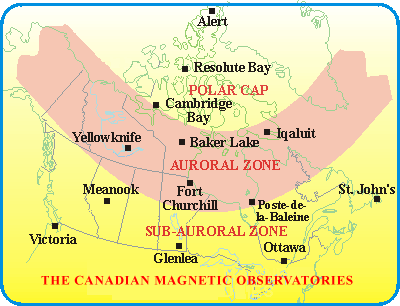 I then took holidays, requested another posting up north and they said no.... So, I quit the Department, went back to Radio College
for four months, got my Certificate for Radio and TV technology and a job at Rogers Majestic who, at the time, were representing Motorola in Canada, building, selling, installing and servicing Motorola two-way radio and Philipps Scientific and Industrial equipment. That year ( 1953 ) was the first year Motorola sold 1 million dollars worth of two way radio Equipment in Canada.. It was quite a milestone for which we were all awarded a bonus on the momentous occasion! I then took holidays, requested another posting up north and they said no.... So, I quit the Department, went back to Radio College
for four months, got my Certificate for Radio and TV technology and a job at Rogers Majestic who, at the time, were representing Motorola in Canada, building, selling, installing and servicing Motorola two-way radio and Philipps Scientific and Industrial equipment. That year ( 1953 ) was the first year Motorola sold 1 million dollars worth of two way radio Equipment in Canada.. It was quite a milestone for which we were all awarded a bonus on the momentous occasion!
I worked at Rogers for a year, did service on two-way radio and Industrial Equipment ( X-Ray, Electron Microscopes and x-ray
diffraction etc etc..)
Then, I met a young lady…, married her, re-joined the Department and took her to Churchill for two years (Ionosphere) then after that went to Baker Lake on Ionosphere work
again, where I was OIC for two years...
That was in 1957 during the
International Geophysical Year (IGY)
and there were all kinds of interesting phenomena in propagation ( such as radio blackouts,and skip propagation on VHF( New York Harbour tugboats blanking out anything else on 49 MHz..)..This was a year of outstanding Aurora borealis (Northern Lights) no doubt due to the magnetic disturbances.. Different colors and I swear you could almost hear them crackle at times.

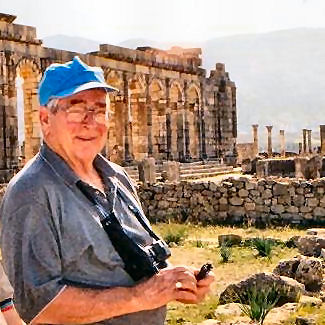
On SKYPE, he wrote '' Its time we had a chat
!!! ( Don't you think ? ) ! too late now ...
Our friend
Vic Decloux left us August 24th 2007. Some of us had good words to write of him
and I thought we could make all of those as our own.
Laval, Sept
5/07
Vic was a
true gentleman in every sense of the word. It was a privilege to have worked
with him and we enjoyed many pleasant adventures together. His sense of humour
and spirit are legendary.
Our Vic
was a wonderful colleague, a valued mentor and a cherished buddy through all
these many years,... truly a great individual .
Our lives
are richer for having known Vic and called him a friend. Our lives are poorer at
his passing ...he was such a fine person who brought joy to any one who new
him.
Vic was
indeed a special person, he was always so full of laughter, stories, and good
humour. He will be missed by all ... he always amazed us with his knowledge and
positive attitude no matter what the situation – one of the good
guys!
It was a
privilege to have Vic touch our life. He was a special colleague and a great
mentor. We will always remember Vic as being a keen listener through his relaxed
demeanour and had a special knack for simplifying seemingly complex issues.
Above all, he was a great guy to just be around and share great
moments.

1985
Vic Decloux
says "adieu"
|
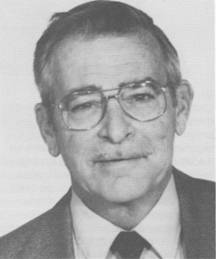
Vic Decloux
|
At a November 23 gathering, more than 100 friends, including directors and
deputy directors of all regions, conveyed their thanks and best wishes to Vic
Decloux on his retirement, after 38 years of public service.
In presentations by Rob Gordon (ADMSM), Ken Hepburn (ADMTI) and Bob Jones
(DOS), Vic received a certificate from the Prime Minister, a medallion and
gifts from his friends and co-workers.
Following
a stint in the Merchant Navy - including being shipwrecked off California - Vic
joined the "department" (it was really the Department of Transport at that time)
in 1946 as a radio operator. His wide range of responsibilities since then
included positions as Manager of the Toronto District Office; Manager of
Frequency Management and Licensing at Headquarters; Manager of Regulatory and
Procedures Division; and Director of Spectrum Management Operations.
Well known in government and industry across Canada, Vic has travelled widely
on behalf of the department, representing Canada at international conferences.
He acted as the co-ordinator of DOC's Saudi Arabia project, and was
headquarters' representative on the communications task force for the recent
papal visit.
Best wishes, Vic, from all of us
at DOC.
|
|
 |
|
 |
|
 |
|
Obituary - Avis de décès
Victor Decloux
19??-2007 |
|
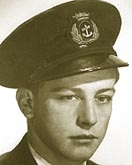 |
 DECLOUX, Victor (Louis) WW II Veteran Passed away peacefully at
home on Friday August 24, 2007.
Beloved husband of Mary Jane. Loving and devoted
father of Derek, Kevin and Sean. Husband of the late Arlene; cherished father of
Elaine (John Boyd), Mark (Lesley), Victor and Gerard (Sharlene). He will also be
missed by many grandchildren and other extended family.
He is predeceased by his
brothers Mark and Lou and his sister Margaret.
Friends may pay respects at the
Kelly Funeral Home, 2370 St-Joseph Blvd., Orleans, Tuesday from 6 to 9 p.m.
Funeral Wednesday to Divine Infant Church, 6658 Bilberry Drive, Orleans for Mass
of Christian Funeral at 10 a.m. Interment National Military Cemetery at
Beechwood Cemetery. In lieu of flowers, in memoriam donations to the Heart and
Stroke Foundation would be appreciated.
|
|
|
Links - Liens
His last trip on the Westbank Park
in 1945
DOT Salvaging 20,000
Empties
Resolute
Bay Ionosphere Station
Station
Ionosphèrique de Resolute Bay
|
|

